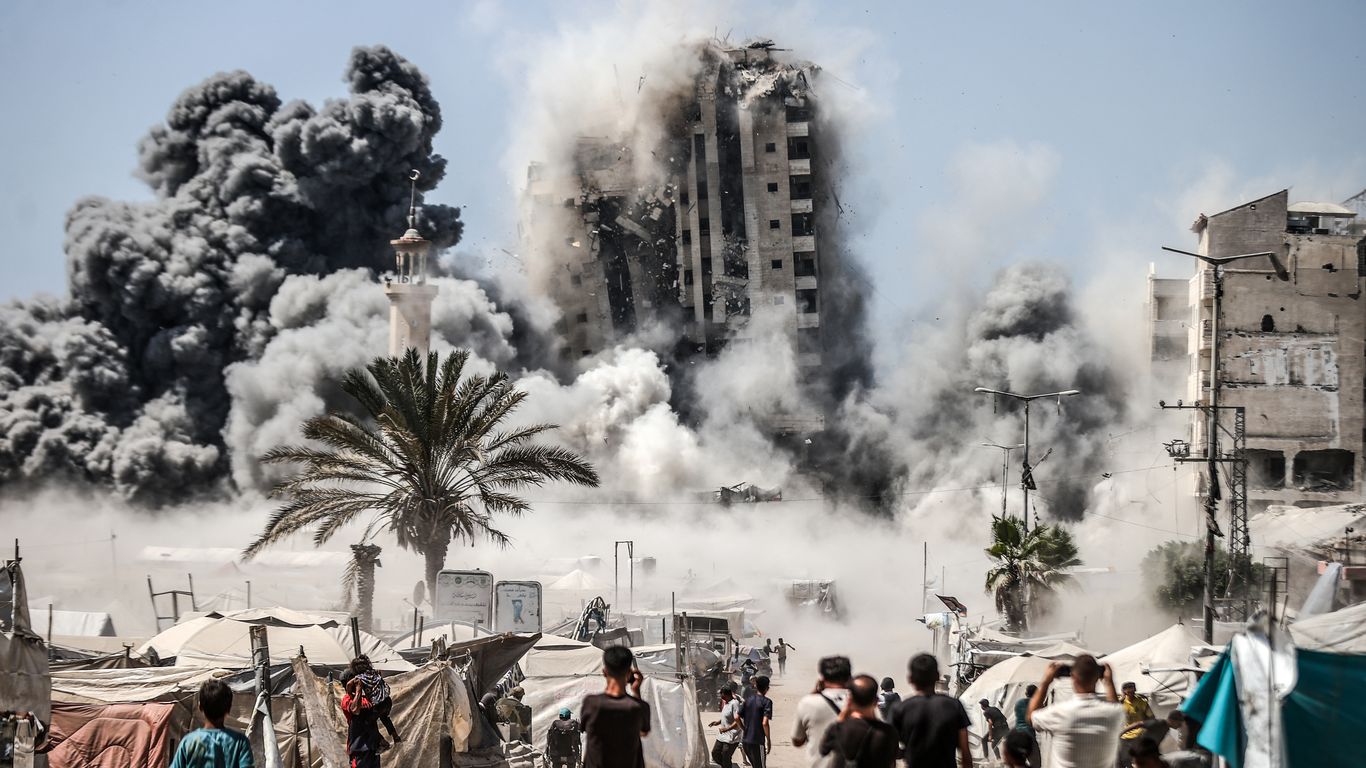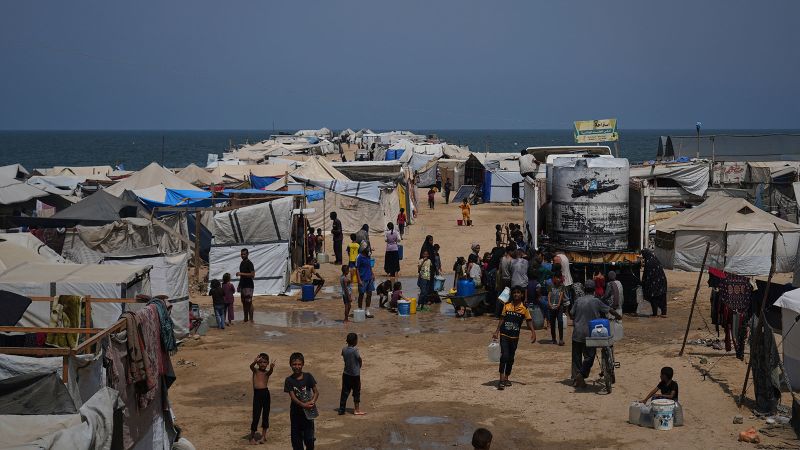Allies threaten Israel with sanctions over Gaza aid crisis

About the People Mentioned
Israel
Israel is a Middle Eastern country located on the eastern shore of the Mediterranean Sea, with a population of approximately 9.56 million as of 2025. It is a parliamentary democracy known for its advanced economy, technological innovation, and complex geopolitical significance. Israel is recognized for having a highly developed free-market economy with a robust high-tech sector that drives much of its economic growth. The country hosts the second-largest number of startup companies globally, trailing only the United States, and is home to numerous multinational R&D centers from leading global tech firms[6][4]. Politically, Israel operates under a parliamentary system and has been led by notable figures such as Prime Minister Benjamin Netanyahu. Internationally, Israel faces mixed perceptions: a 2025 Pew Research Center survey found that global views of Israel and Netanyahu are predominantly negative, and many Israelis themselves feel their country lacks respect internationally[3]. Israel's economy is diverse, including significant industrial manufacturing, diamond cutting and polishing, and an expanding energy sector influenced by recent natural gas discoveries. Tourism also plays an important role, with millions of visitors annually attracted to historic and religious sites[6]. The country maintains a sophisticated welfare state and a powerful military, reportedly possessing nuclear capabilities[6]. In terms of governance and social indicators, Israel scores 73 out of 100 on the 2025 Freedom House global freedom index, categorizing it as "free" politically and socially[1]. Education and youth employment are focal points for public policy, with youth not in employment, education, or training (NEET) rates close to the OECD average[9]. Recent economic forecasts anticipate about 3% GDP growth in 2025, largely driven by the high-tech sector[4]. Despite economic strengths, Israeli society continues to grapple with internal ideological divisions and ongoing regional security challenges, maintaining its central relevance in Middle Eastern and global affairs.
About the Organizations Mentioned
AP
The Associated Press (AP) is a **global, not-for-profit news cooperative** headquartered in New York City, founded in 1846 by five New York newspapers to provide faster news delivery during the Mexican-American War. It operates as a cooperative unincorporated association, distributing news to its members, major newspapers, broadcasters, and subscribers worldwide[1][2][4]. AP is one of the oldest and most respected news agencies with a vast global presence: it maintains about 235 bureaus in 94 countries and publishes content in English, Spanish, and Arabic. Its journalism reaches over four billion people daily, with more than 400,000 stories, 80,000 videos, and 1.2 million photos produced annually[2]. As of 2025, its website attracts over 128 million monthly visits, ranking it among the top 10 U.S. news websites[1]. Known for its **unbiased, fact-based reporting**, AP champions press freedom, journalist safety, and intellectual property protection. It has won **59 Pulitzer Prizes**, including 36 for photography, reflecting its high journalistic standards and impact[1][3][4]. AP’s content spans breaking news, sports polls, election coverage, and enterprise reports, and it also publishes the widely used *AP Stylebook*. Throughout its history, AP has been a pioneer in journalism, covering major historical events from Abraham Lincoln’s assassination to contemporary global conflicts. It has successfully navigated 21st-century challenges, including the decline of local newspapers and political controversies, while maintaining editorial independence[2][3]. Governed by an executive leadership team and board of directors, AP continues to innovate and uphold its mission to advance “the power of facts” for a worldwide audience. It also supports journalists through initiatives like the AP Emergency Relief Fund to assist colleagues affected by conflict or disaster[2][4]. Its reliability and minimal bias have been recognized by independent media rating organizations, confirming its position as a
United Nations
The United Nations (UN) is a pivotal international organization established in 1945, following the devastation of World War II, with the primary goal of maintaining global peace and security, fostering international cooperation, and promoting social progress. The UN Charter, signed by 51 founding member states, including the United States, the United Kingdom, China, and the Soviet Union, laid the foundation for this ambitious endeavor[1][3]. ## History and Structure The UN was born out of the failures of its predecessor, the League of Nations, which failed to prevent World War II. Key planning meetings, such as the Dumbarton Oaks Conference in 1944, defined the UN's structure, which includes the General Assembly, the Security Council, the Economic and Social Council, the Trusteeship Council, the International Court of Justice, and the Secretariat[1][6]. The Security Council, with five permanent members (the United States, China, France, Russia, and the United Kingdom), holds significant influence due to its veto power[2]. ## Key Achievements Over the years, the UN has played a crucial role in conflict resolution, human rights advocacy, and sustainable development. Notable achievements include the establishment of the Universal Declaration of Human Rights in 1948 and the implementation of numerous peacekeeping missions worldwide[3][4]. The UN has also been instrumental in addressing global challenges such as climate change and pandemics through its various programs and agencies. ## Current Status Today, the UN comprises 193 member states, with its most recent addition being South Sudan in 2011[5]. The organization continues to evolve, addressing emerging issues like digital governance and cybersecurity. Despite challenges, the UN remains a cornerstone of international diplomacy and cooperation. ## Notable Aspects The UN's work is not limited to politics; it also impacts business and technology through initiatives that promote sustainable development and digital inclusion. Its role in setting global standards and fostering international cooperation makes it a significant player in shaping the

















